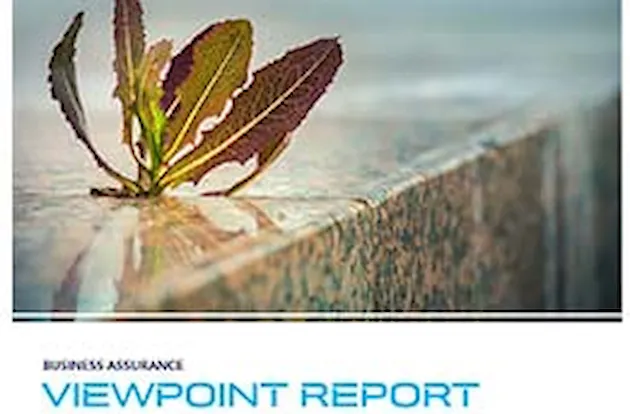Businesses failing to adapt to climate change despite exposure to extreme weather risks, according to DNV GL report
Nearly 1 in 2 companies expect climate change to have an impact on their value chain within the next five years but only 1 in 4 is taking action to adapt or increase resilience.
A new international survey conducted by DNV GL, the global quality assurance and risk management company, with support from GFK Eurisko investigates whether companies are resilient enough to climate change. The study involved more than 1,200 professionals from Europe, Asia and the Americas.
“Companies are already feeling the impacts of climate change on their operations or see a high risk of imminent consequences. Despite this, our study records a lack of proactivity, with a minority acting to adapt or increase resilience. Are businesses underestimating how disruptive the impacts could be and how urgent it is to face this issue?” asks Luca Crisciotti, CEO of DNV GL – Business Assurance.
Nearly all the companies surveyed mentioned at least one climate-related hazard that they think will have a direct or indirect impact on their business. The biggest concerns are temperature increases/heatwaves (55%), storms (44%) and floods (38%). The concerns vary by geography. For example, in Central and South America and Europe, 6 in 10 see temperature rises and heatwaves as the dominant hazard, while 6 in 10 in North America identify storms as the major threat.
Impacts are happening now
Companies are expecting impacts to affect their business within a few years. Only 1 in 8 companies expects them to occur more than 10 years into the future and more than 1 in 4 claim that one area of their value chain has already been impacted. Only 25% say they are already applying adaptation or resilience measures. Large companies are further ahead, with 40% reporting that actions have already been implemented.
“This is a small percentage compared to the threats they are facing. Additionally, there seems to be a confusion between climate change adaptation/resilience and mitigation, as over 43% indicate actions falling within the broader definition of climate resilience. Mitigation efforts are crucial to reduce greenhouse gas emissions, but these will not help a company adapt to climate change or build resilience. That indicates that there is a huge potential to increase companies’ awareness of and preparedness for handling the effects of climate change,” explains Luca Crisciotti.
Motivated by external factors
The results suggest that businesses are only starting their journey to deal with climate change adaptation and resilience. External factors such as laws and regulations (50%) and needs/requests from customers (43%) are prominent drivers for action. However, safeguarding the company, public concerns/corporate responsibility and business continuity rank just behind.
The survey has identified a small group of companies, labelled Leaders , that stand out as frontrunners. They have already implemented adaptation or resilience actions and rank higher on every aspect highlighted in the survey. To them, business continuity (55%) is just as important as laws and regulations (53%) when it comes to motivation for climate change actions. Approximately half of the Leaders are also convinced that benefits will arise in terms of competitive advantage and 35% name value creation as a driver.
Luca Crisciotti adds: “On the one hand, the frontrunners show there is an opportunity to adapt and build resilience while gaining a competitive advantage. On the other hand, the report clearly highlights that we need to increase awareness and understanding of the importance of adapting and building resilience to climate change. We advise companies to start by assessing the risks and defining a strategic approach to tackle them.”


